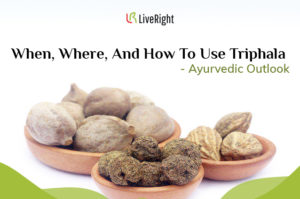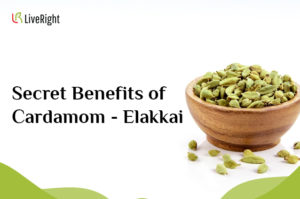Last updated on August 21, 2024 by Dr. Subashri Thanigaivel
Did you know that our ancient science also gives immense importance to the metals that our cooking utensils are made of?
While modern living has made us turn towards the more convenient steel, glass and non-stick cookware, old-school utensils are noted to hold therapeutic benefits, whether you use them for cooking, or to eat your meals. In fact, while glass and steel are fairly neutral, coated or non-stick pans could even be detrimental to the health of your skin. Dr Perumbuduri Naresh, senior Ayurvedic physician at Ananda in the Himalayas, says that the chemicals that leach off these coated pans could cause conditions like chronic acne. While it would be rather inconvenient to completely replace your cookware (how on earth will you cook tomorrow’s breakfast omelette?), you can still incorporate some pure metals (and clay) into your kitchen to boost health and longevity.
Here’s how to do it:
Copper:
This is the best metal for cooking rice. ” You can also store water overnight in a copper utensil, and drink your first glass from this to enjoy the benefits of this wonderful metal. Science has now proved that copper-rich foods boost collagen. Therefore, this metal offers advantages for the skin too. If you are a Kapha type (prone to weight gain, coughs and congestion), then this is the best for you.
“Copper is related to sun and fire, therefore it helps increase Agni in the body—so indirectly, it will also increase metabolic rate,” says Dr Naresh.
It detoxifies the body, helps increase haemoglobin, improves the secretion of bile and the peristaltic movements of the gut to aid digestion as well.
Brass:
Brass is still commonly used in small towns and villages in the country. “Water stored in a brass vessel increases strength and immunity.” In addition, it also helps pacify pitta (burning sensations, aggression), increases haemoglobin count, and improves the general condition of your skin. “What’s more, it will not change the qualities of the material that is placed in the container.” water kept in a copper vessel is rid of germs within 4 hours.
Bronze:

This ancient metal is rarely used these days; however, it offers immense benefits. Specifically, it pacifies Vata (dry skin, nervous temperament, irritability) and pitta. It also helps reduce obesity, improve eyesight and skin condition. “It is the best to cook and eat in; however, you cannot use ghee in a bronze vessel.”
Clay:

According to Ayurveda Specialist at Dr.Vaidya’s, Dr.Surya Bhagwati, “Cooking in a clay pot not only has a variety of health benefits but also makes for an easier cooking process and in the end, a more flavorful and nutritious dish. Due to its numerous health benefits, Ayurveda suggests cooking in a clay pot. Cooking in a clay pot is much better than cooking in a normal utensil, not just for its various health benefits, but also makes it much simpler to cook and improves the quality of the food at the end.
The porosity and natural insulation properties of clay cause heat and moisture to circulate throughout clay pots. This makes cooking in a clay pot a much slower process but it has the benefit of preventing amateur cooks from burning their dishes. More importantly, this causes the moisture and nutrient loss while cooking in clay pots to be much lower compared to cooking in metal or enamel-lined utensils.”
Clay pot’s porous nature allows both moisture and heat to circulate through the food, which results in slow yet aromatic food. It also retains the nutrition of the food, which is generally lost in other types of utensils. The thermal inertia in clay pots helps meats stay tender and soft as the muscle proteins denature and collagen breaks down completely.
Stoneware:
“Stoneware takes a little effort to get started with and needs to be seasoned well to last long and yield good results. One also has to handle them carefully since they can break,”

The seasoning process involves six to eight weeks of acclimatising it to heat and developing a non-stick coating. The procedures involve leaving starch or curd for a period of time, coating them with fat or oil mixed with turmeric, till the vessel becomes heavier and it’s colour changes. It retains the flavour and colour of the vegetables.
Kalchatti, a cooking vessel carved out of soapstone, a naturally occurring soft stone. Thick walled and heavy, they ensure slow and even cooking. Since they are porous, heat and moisture circulate through the pot while cooking, thereby enhancing the flavours. Traditionally used on wood stoves, these can also be used on the modern gas stove. Kalchatti cooking can neutralise the pH balance of acidic food items and thus enhance their nutritional value while cooking. Kalchatti can be used to prepare gravies, but not for dry preparations or sautéing. The older the kalchatti becomes, the cooking quality improves.
Kalchatti cooking is a slow-burn. Turn off the flame 4-5 minutes before the food is fully cooked. It will continue to cook slowly in the heat retained inside the vessel. The time taken to heat in kalchatti cooking is compensated by turning off the stove, a little earlier than in regular cooking.
Kalchatti cooking doesn’t require refrigeration. As the vessel ages, the cooking quality improves. Most important part in this cooking; kalchatti has to be seasoned before you start cooking in it.
Even after seasoning, the kalchatti should be introduced gently and slowly into daily cooking. Use on a low flame and don’t let the water dry while cooking. Kalchatti needs to be oiled periodically overnight and wash them by morning.
Iron:

Cast iron cookware is undoubtedly a valuable addition to any kitchen. Our grandmothers back then knew a great deal more than they let on. A well-seasoned cast iron vessel requires a minimal amount of oil for cooking. This is because the seasoning process includes adding a coating of oil and heating. When done correctly, the oil acts as a seal against the porous surface and the application of heat also ensures that the oil bonds to the metal. even for rasam, tempering with ghee and mustard oil done in an iron ladle. perhaps our ancestors never suffered from iron deficiency!
LET US GET BACK TO STONE AND METAL AGE TO GET BACK OUR HEALTH!
About the Author:

Kalaimamani Revathi Sankaran is a Tamil television personality/film actress. She has been around the media space for more than 40 years. A credible actor, singer and anchor of the popular television show ‘ Paati Vaithiyam’.



